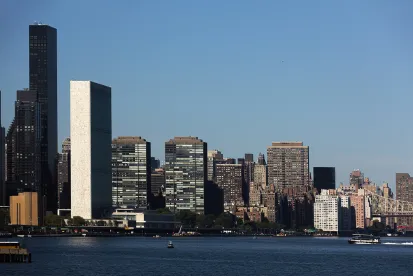EJ Town Hall
On Wednesday, August 18, 2021, the Mayor’s Office and the Environmental Justice Advisory Board will hold another virtual Town Hall regarding environmental justice (EJ) issues throughout the City. Among other topics, we anticipate a discussion of the development of the “Environmental Justice for All Report” draft Scoping Document (defined and discussed below).
The virtual EJ Town Hall will be on August 18th from 6:00-7:30 pm EDT. Interested persons should click this link to register.
EJ Report Draft Scoping Document
On August 5, 2021, the New York City Mayor’s Office of Climate and Sustainability released the long-awaited draft scoping document (the “Scoping Document”) for its “Environmental Justice For All Report” (the “EJ Report”). The Scoping Document is a great resource that identifies what NYC considers as City-wide important EJ issues throughout the City (similar to the U.S. EPA’s EJ Screen Tool). The EJ Report will study the City’s EJ Areas, analyze environmental and climate issues, and identify which communities throughout the City are disproportionately impacted by environmental burdens. The report will also detail which communities are not seeing the benefits of the City’s environmental investments.
The EJ Report is but one aspect of the City’s comprehensive EJ Program, which stems from the NYC Local Laws 60 and 64 of 2017 calling for the preparation of a report, an online EJ portal, and an EJ Plan. The draft Scoping Document indicates that data and analysis from the EJ Report will be used to create a public, web-based portal and mapping tool where everyone can see what EJ looks like in various communities throughout the City. The draft Scoping Document suggests the following EJ concerns will be evaluated by the EJ Report, among others:
-
Drinking water quality;
-
Proximity to impaired water bodies, streams, and park lakes;
-
Proximity to facilities with permits under the State Pollution Discharge Elimination System (SPDES);
-
Sewer infrastructure quality and management, including street flooding and drainage issues, smells and sewer backups;
-
Exposure to hazardous materials, including lead in housing, workplaces, schools, and community parks;
-
Proximity to federal Superfund sites and other contaminated lands;
-
Noise pollution;
-
Indoor air quality issues; and
-
Energy and utility affordability.
In its current draft form, the Scoping Document suggests the EJ Report will be broken down into three distinct tasks:
-
Task 1: Analysis of Environmental Outcomes and Climate Vulnerabilities. With this task, the EJ Report will identify and describe EJ Areas in the City, as well as specific EJ and climate change-related concerns. This task will also estimate investment in key programs and projects that can advance climate and EJ, generally.
-
Task 2: Analysis of the City’s Contribution to Environmental Justice. This task will focus primarily on the extent to which City agencies have historically contributed to environmental injustices and areas where the City has played a role in advancing EJ. The evaluation of existing City programs, policies, activities, and processes that may implicate EJ concerns will also be considered by this task.
-
Task 3: Review Inclusivity and Engagement with Respect to Environmental Decision-Making. In this section, the EJ Report will evaluate how the City has historically managed environmental decision-making processes, particularly with historically underserved population groups in EJ areas. With this task, the City is hoping to understand how the agencies have treated and treat New Yorkers in environmental decision-making, particularly with the distribution of environmental benefits and other decisions that may implicate EJ concerns. Ultimately, these tasks should help the City understand historical barriers to civic engagement and identify opportunities for improving the engagement process.
The EJ Report will ultimately inform the development of an EJ Plan that will likely govern much of how NYC approaches large projects, programs, infrastructure investments, and procurement decisions.
Public comment period on the Scoping Document is open. Comments are due by September 5 and can be submitted via this link.




 />i
/>i

